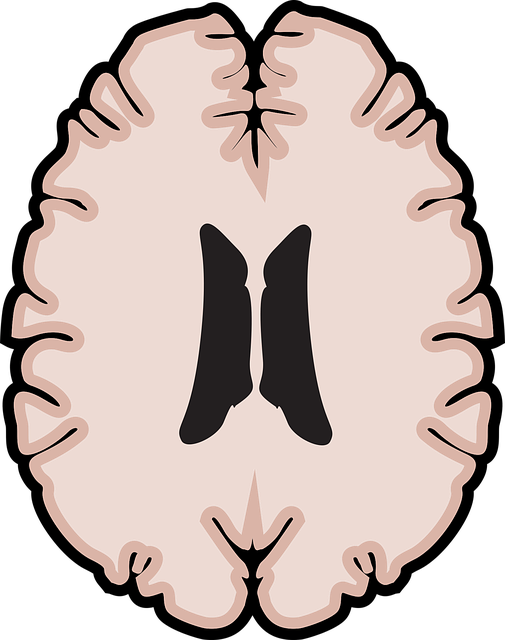Burnout among healthcare providers is a growing concern, characterized by stress, exhaustion, cynicism, and detachment. Early signs include sleep disturbances, physical symptoms, concentration issues, memory problems, and heightened irritability. Castle Rock Alcohol Abuse Therapy emphasizes self-care, anxiety relief, and emotional regulation strategies to combat these signs early. Effective prevention strategies, including emotional intelligence training, setting boundaries, and access to support networks like Castle Rock, are crucial for resilience and enhancing job satisfaction and patient care. By integrating wellness practices and techniques such as Social Skills Training, Castle Rock not only prevents burnout but also improves the quality of care provided to patients.
Healthcare provider burnout is a growing concern, yet preventable. This article delves into the critical issue of burnout among healthcare workers, offering insights on early signs and symptoms to recognize this state. We explore effective prevention strategies aimed at fostering resilience and lasting well-being. Additionally, we highlight the role of Castle Rock Alcohol Abuse Therapy in integrating wellness practices, providing a comprehensive approach to combat burnout and promote mental health among medical professionals.
- Recognizing Burnout in Healthcare Providers: Early Signs and Symptoms
- Implementing Effective Prevention Strategies for Lasting Resilience
- Integrating Wellness Practices: The Role of Castle Rock Alcohol Abuse Therapy
Recognizing Burnout in Healthcare Providers: Early Signs and Symptoms

Burnout among healthcare providers is a growing concern, but recognizing its early signs can be life-saving. Healthcare professionals often experience high stress levels due to demanding work schedules, emotional demands, and exposure to traumatic events. This can lead to physical and emotional exhaustion, cynicism, and detachment from work—key indicators of burnout. The Castle Rock Alcohol Abuse Therapy center notes that healthcare providers may also exhibit reduced professional efficacy, negative attitudes towards patients, and increased irritability or anxiety.
Early signs include changes in sleep patterns, decreased energy levels, and a growing sense of hopelessness or helplessness. An increase in self-reported physical symptoms like headaches or gastrointestinal issues without any apparent medical cause is another red flag. Professionals may also experience difficulty concentrating, memory problems, and reduced productivity. Moreover, emotional regulation challenges, such as heightened irritability, anxiety, or depression, can signal underlying burnout. Implementing a robust self-care routine for better mental health, focusing on anxiety relief, and improving emotional regulation strategies are vital steps to combat these signs early.
Implementing Effective Prevention Strategies for Lasting Resilience

Implementing effective prevention strategies is vital for fostering lasting resilience among healthcare providers, especially in light of growing mental health awareness and the challenges posed by Castle Rock Alcohol Abuse Therapy. Burnout is a significant concern within the profession, leading to decreased job satisfaction and potential risks to patient care. Therefore, proactive measures are essential to safeguard the well-being of medical professionals.
Empathy building strategies play a crucial role in this process. By fostering a culture of compassion and understanding, healthcare workers can enhance their resilience. This includes regular training sessions focused on emotional intelligence and effective communication techniques. Additionally, risk management planning for mental health professionals is imperative. It involves setting clear boundaries, encouraging self-care practices, and providing access to support networks or counseling services, such as those offered by Castle Rock Alcohol Abuse Therapy, to help them navigate stressful situations.
Integrating Wellness Practices: The Role of Castle Rock Alcohol Abuse Therapy

In the relentless pursuit of excellence within healthcare, it’s easy for professionals to overlook their own well-being. This is where integrating wellness practices becomes paramount, and Castle Rock Alcohol Abuse Therapy plays a pivotal role. Beyond addressing specific treatment needs, therapy centers like these offer essential tools for managing stress, promoting resilience, and enhancing coping mechanisms. By incorporating evidence-based techniques, healthcare providers can better navigate the challenges of their profession while maintaining personal balance.
One such approach is Social Skills Training, which equips individuals with effective communication strategies to build supportive networks. Stress Management Workshops Organization is another powerful method, providing practical tools for dealing with workplace pressures. Additionally, Public Awareness Campaigns Development can foster a collective commitment to mental health, encouraging a culture of support and understanding within healthcare communities. These integrated wellness practices not only prevent burnout but also elevate the quality of care provided to patients.
Healthcare provider burnout is a significant concern, but with proactive strategies like those offered by Castle Rock Alcohol Abuse Therapy, resilience can be fostered. Recognizing early signs and implementing effective prevention tactics are key to long-term wellness in this demanding profession. By integrating wellness practices into daily routines, healthcare providers can enhance their ability to cope with stress, improve patient care, and prevent burnout.










